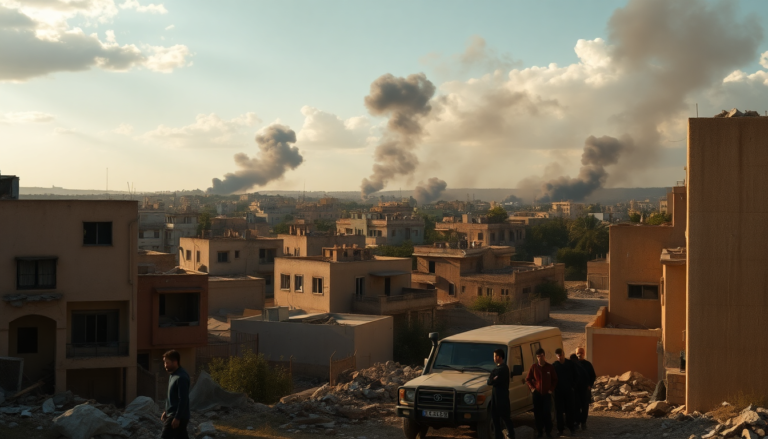What are the real implications of the escalating conflict between Israel and Iran?

Topics covered
In today’s fast-changing world of international relations, the recent military actions between Israel and Iran raise some tough questions about what this means for global stability. As tensions flare, driven by political decisions and military strikes, it’s essential to dig deeper and analyze the real data behind these events.
Buckle up as we take a closer look at the ongoing situation, the facts at play, and what this could mean for all of us.
Unpacking the Current Situation
Israel’s latest military strikes against Iran signal a significant shift in a conflict that’s been simmering for years.
Just five days into this renewed hostilities, Israel’s actions were triggered by a tangled web of political maneuvers, including the early exit of former U.S. President Donald Trump from the G7 summit in Canada. His call for Iranians to evacuate Tehran wasn’t just an off-the-cuff remark; it underscored the volatile situation we’re dealing with.
But how serious is this? To grasp the weight of what’s happening, we need to look at the numbers. Israeli officials have claimed they successfully targeted high-ranking Iranian military leaders, resulting in the deaths of key figures like Ali Shadmani and Hossein Salami. These casualties underscore just how strategic Israel’s military campaign is—but they also raise a crucial question: how will these developments shift the balance of power in the region?
Interestingly, the G7 summit, which was supposed to focus on global economic issues, has found itself caught up in discussions about how to calm the Israel-Iran conflict. Although there were talks of a ceasefire, history tells us that geopolitical conflicts rarely resolve themselves through diplomatic efforts alone. The reactions from world leaders reveal a split in viewpoints: some back Israel’s right to defend itself, while others express serious concerns over the escalating violence.
Lessons from History: The Impact of Military Actions
History has a way of teaching us that military actions often come with unexpected consequences, especially in the tangled web of global politics. Just look at the U.S. invasion of Iraq in 2003. The intent was to eliminate a perceived threat, but instead, it created a power vacuum that allowed ISIS to rise and turned the region into a hotbed of instability.
The recent Israeli strikes might provide immediate tactical wins, but they also risk inflaming anti-Israeli sentiments across the region and beyond. Moreover, the possibility of retaliation from Iran or its allies could escalate into a larger conflict, dragging in other nations and further complicating already fragile international relations.
It’s crucial for leaders and policymakers to reflect on these historical lessons when crafting their responses to such conflicts. The focus should shift from reactive military strategies to proactive diplomatic efforts that prioritize conflict resolution and stability. Strategies that combine economic incentives with long-term commitments to peace could lead us to more lasting solutions.
Actionable Insights for Leaders and Policymakers
For those steering through these choppy waters, several key takeaways emerge from the current situation. First, understanding the concept of product-market fit (PMF) isn’t just for startup founders; in the realm of geopolitics, it means aligning military actions with clear strategic goals and public backing.
Second, diving into the data—whether it’s military capabilities, public sentiment, or economic impacts—can offer critical insights into how effective current strategies are. It’s essential to keep an eye on the churn rate of public support for military actions; this reflects how sustainable these approaches really are.
Finally, maintaining open lines of communication with affected nations is paramount. Engaging in discussions, even with adversaries, can create unexpected pathways toward de-escalation and lasting peace. Unilateral military actions often spiral into cycles of retaliation and conflict, rather than bringing about resolution.
Conclusion
The ongoing clashes between Israel and Iran serve as a stark reminder of the complexities of modern geopolitical conflicts. As leaders navigate these challenges, it’s crucial to adopt a data-driven approach that prioritizes sustainable solutions over short-term military victories. By learning from past mistakes and embracing comprehensive strategies, we can aim for a future where dialogue, not violence, resolves conflicts.




